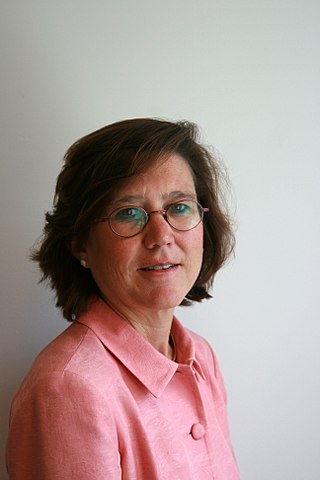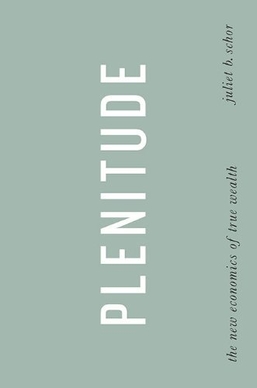Overconsumption describes a situation where a consumer overuses their available goods and services to where they can't, or don't want to, replenish or reuse them. In microeconomics, this may be described as the point where the marginal cost of a consumer is greater than their marginal utility. The term overconsumption is quite controversial in use and does not necessarily have a single unifying definition. When used to refer to natural resources to the point where the environment is negatively affected, it is synonymous with the term overexploitation. However, when used in the broader economic sense, overconsumption can refer to all types of goods and services, including manmade ones, e.g. "the overconsumption of alcohol can lead to alcohol poisoning". Overconsumption is driven by several factors of the current global economy, including forces like consumerism, planned obsolescence, economic materialism, and other unsustainable business models and can be contrasted with sustainable consumption.
In social behavior, downshifting is a trend where individuals adopt simpler lives from what critics call the "rat race".

The Theory of the Leisure Class: An Economic Study of Institutions (1899), by Thorstein Veblen, is a treatise of economics and sociology, and a critique of conspicuous consumption as a function of social class and of consumerism, which are social activities derived from the social stratification of people and the division of labor; the social institutions of the feudal period that have continued to the modern era.
South End Press was a non-profit book publisher run on a model of participatory economics. It was founded in 1977 by Michael Albert, Lydia Sargent, Juliet Schor, among others, in Boston's South End. It published books written by political activists, notably Arundhati Roy, Noam Chomsky, bell hooks, Winona LaDuke, Manning Marable, Ward Churchill, Cherríe Moraga, Andrea Smith, Howard Zinn, Jeremy Brecher and Scott Tucker. South End Press closed in 2014.

Anti-consumerism is a sociopolitical ideology. It has been defined as "intentionally and meaningfully excluding or cutting goods from one's consumption routine or reusing once-acquired goods with the goal of avoiding consumption". The ideology is opposed to consumerism, being a social and economic order in which the aspirations of many individuals include the acquisition of goods and services beyond those necessary for survival or traditional displays of status.

Robert Costanza is an American/Australian ecological economist and Professor at the UCL Institute for Global Prosperity, University College London. He is a Fellow of the Academy of the Social Sciences in Australia and a Full Member of the Club of Rome.

The Diderot effect is a phenomenon that occurs when acquiring a new possession leads to a spiral of consumption that results in the acquisition of even more possessions. In other words, it means that buying something new can cause a chain reaction of buying more and more things, as the new item makes one feel like one needs other things to go with it or to keep up with it. This can lead to overspending and accumulating more possessions than one actually needs or uses. The term was coined by anthropologist and scholar of consumption patterns Grant McCracken in 1988, and is named after the French philosopher Denis Diderot (1713–1784), who first described the effect in an essay titled "Regrets for my Old Dressing Gown, or, A warning to those who have more taste than fortune".

Michèle Lamont is a Canadian sociologist who is the Robert I. Goldman Professor of European Studies and a professor of Sociology and African American Studies at Harvard University. She is a contributor to the study of culture, inequality, racism and anti-racism, the sociology of morality, evaluation and higher education, and the study of cultural and social change. She is the recipient of the Gutenberg Award and the Erasmus award, for her "devoted contribution to social science research into the relationship between knowledge, power, and diversity." She has received honorary degrees from five countries. and been elected to the British Academy, Royal Society of Canada, Chevalier de l’Ordre des Palmes Academiques, and the Sociological Research Association. She served as president of the American Sociological Association from 2016 to 2017. In 2024, she was elected to the American Philosophical Society.
Beverley Skeggs is a British sociologist, noted as one of the foremost feminist sociologists in the world. Currently, she works as a "Distinguished Professor" in the Sociology Department at Lancaster University, developing a Center for Social Inequalities in the North West of England. She continues to run the "Economics of Care" theme at the International Inequalities centre at the London School of Economics (LSE) and is a visiting professor at Goldsmiths University. She has been the head of two of the UK's leading Sociology Departments, at the University of Manchester and Goldsmiths, as well as co-director of Lancaster's Women's Studies. In addition, she played a part in transforming Britain's oldest sociology journal, The Sociological Review, into an independent foundation devoted to opening up critical social science and supporting social scientists.
Louise Audino Tilly was an American historian known for utilizing an interdisciplinary approach to her scholarly work, fusing sociology with historical research. Biographer Carl Strikwerda, states:

Carol Graham is the Leo Pasvolsky Senior Fellow at the Brookings Institution, a College Park professor at the School of Public Policy at the University of Maryland, a research fellow at the Institute for the Study of Labor (IZA), and the author of numerous books, papers and edited volume chapters.

Tim Jackson is a British ecological economist and professor of sustainable development at the University of Surrey. He is the director of the Centre for the Understanding of Sustainable Prosperity (CUSP), a multi-disciplinary, international research consortium which aims to understand the economic, social and political dimensions of sustainable prosperity. Tim Jackson is the author of Prosperity Without Growth and Material Concerns (1996). In 2016, he received the Hillary Laureate for exceptional mid-career Leadership. His most recent book Post Growth—Life After Capitalism was published in March 2021 by Polity Press.

William A. "Sandy" Darity Jr. is an American economist and social scientist at Duke University. Darity's research spans economic history, development economics, economic psychology, and the history of economic thought, but most of his research is devoted to group-based inequality, especially with respect to race and ethnicity. His 2005 paper in the Journal of Economics and Finance established Darity as the 'founder of stratification economics.' His varied research interests have also included the trans-Atlantic slave trade, African American reparations and the economics of black reparations, and social and economic policies that affect inequities by race and ethnicity. For the latter, he has been described as "perhaps the country’s leading scholar on the economics of racial inequality."
Naila Kabeer is an Indian-born British Bangladeshi social economist, research fellow, writer and Professor at the London School of Economics. She was also president of the International Association for Feminist Economics (IAFFE) from 2018 to 2019. She is on the editorial committee of journals such as Feminist Economist, Development and Change, Gender and Development, Third World Quarterly and the Canadian Journal of Development Studies. She works primarily on poverty, gender and social policy issues. Her research interests include gender, poverty, social exclusion, labour markets and livelihoods, social protection, focused on South and South East Asia.
Neva Goodwin Rockefeller is an American businesswoman. She's served as co-director of the Global Development And Environment Institute (GDAE) at Tufts University since 1993, where she is a research associate at the Fletcher School of Law and Diplomacy and director of the Social Science Library: Frontier Thinking in Sustainable Development and Human Well-Being.
Kathleen Thelen is an American political scientist specializing in comparative politics. She is the Ford Professor of Political Science at the Massachusetts Institute of Technology (MIT), a permanent external member of the Max Planck Institute for the Study of Societies (MPIfG), and a faculty associate at the Center for European Studies (CES) at Harvard University.
Adia Harvey Wingfield is a professor of sociology at Washington University in St. Louis and the 2018 President of Sociologists for Women in Society. She is the author of several books, including No More Invisible Man: Race and Gender in Men's Work, and articles in peer-reviewed journals including Social Problems, Gender & Society, and Ethnic and Racial Studies. She has lectured internationally on her research.
The Overspent American: Upscaling, Downshifting, and the New Consumer is a 1998 book by Juliet Schor on American consumer spending patterns.

True Wealth: How and Why Millions of Americans are Creating a Time-Rich, Ecologically Light, Small-Scale, High-Satisfaction Economy is a 2010 book by Juliet Schor that argues for a redefinition of wealth based on allocation of free time, making things for oneself, environmentally-aware consumption, and stronger social connections.
Rebecca Diamond is Class of 1988 Professor of Economics at Stanford Graduate School of Business and an associate editor of Econometrica and American Economic Journal: Applied Economics. Her research areas include urban economics and labor economics.









